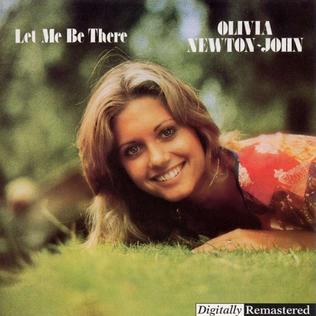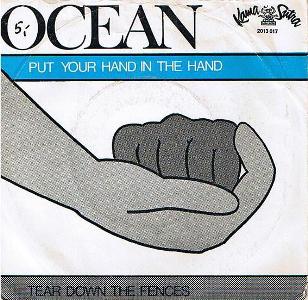
Roland Kent LaVoie, better known by his stage name Lobo, is an American singer-songwriter who was successful in the 1970s, scoring several U.S. Top 10 hits including "Me and You and a Dog Named Boo", "I'd Love You to Want Me", and "Don't Expect Me to Be Your Friend". These three songs, along with "Where Were You When I Was Falling in Love", gave Lobo four chart toppers on the Easy Listening/Hot Adult Contemporary chart.

"The Show Must Go On" is a song co-written by Leo Sayer and David Courtney and first recorded by Sayer. It was released in the United Kingdom in 1973, becoming Sayer's first hit record. The song reached #3 on the Irish Singles Chart in January 1974, and was included on Sayer's debut album Silverbird.

"Vincent" is a song by Don McLean, written as a tribute to Vincent van Gogh. It is often erroneously titled after its opening refrain, "Starry, Starry Night", a reference to Van Gogh's 1889 painting The Starry Night.

"Black and White" is a song written in 1954 by David I. Arkin and Earl Robinson (music). It was first recorded by Pete Seeger featuring an African-American child, in 1956 from the album Love Songs for Friends & Foes.

"Breaking Up Is Hard to Do" is a song recorded by Neil Sedaka, co-written by Sedaka and Howard Greenfield. Sedaka recorded this song twice, in 1962 and 1975, in two significantly different arrangements, and it is considered to be his signature song. Between 1970 and 1975, it was a top-40 hit three separate times for three separate artists: Lenny Welch, The Partridge Family and Sedaka's second version.

"Sundown" is a song by Canadian folk artist Gordon Lightfoot, from the titular album, released as a single in March 1974.

"Let Me Be There" is a popular song written by John Rostill. It was first recorded by Olivia Newton-John and released in September 1973 as the second single from her studio album of the same name. The country-influenced song was Newton-John's first Top 10 single in the US, peaking at No. 6, and also won her a Grammy Award for Best Female Country Vocalist. Mike Sammes sings a bass vocal harmony on the song.

"Put Your Hand in the Hand" is a gospel pop song composed by Gene MacLellan and first recorded by Canadian singer Anne Murray from her third studio album Honey, Wheat and Laughter.

"Rainy Days and Mondays" is a song by the Carpenters from their self-titled third album, with instrumental backing by the Wrecking Crew. It was written by Paul Williams (lyrics) and Roger Nichols (music), who had previously written “We’ve Only Just Begun,” another hit for the duo. The B-side on the single is "Saturday", a song written and sung by Richard Carpenter.

"Clair" is a song by Gilbert O'Sullivan, released in 1972 as the first single from his second album Back to Front. It was written by O'Sullivan and produced by Gordon Mills, and is one of O'Sullivan's biggest-selling singles.

"Hurting Each Other" is a song popularized by the Carpenters in 1972. It was written in 1965 by Gary Geld and Peter Udell, and has been recorded many times by artists ranging from Ruby & the Romantics to Rosemary Clooney.

"Baby Don't Get Hooked on Me" is a hit song by country and pop singer-songwriter Mac Davis. From his breakthrough album of the same name, the song reached No.1 on both the Billboard Hot 100 and Easy Listening charts in September 1972, spending three weeks atop each chart. Billboard ranked it as the No.8 song of 1972. Davis wrote it when the record company demanded he write a tune with a "hook".

"An Old Fashioned Love Song" is a 1971 song written by Paul Williams and performed by the American pop-rock band Three Dog Night. Chuck Negron performed the lead vocal on this track. Taken as the first single from their 1971 album, Harmony, the song peaked at number 4 on the Billboard Hot 100 chart in December 1971, becoming the band's seventh top-ten hit. It was Three Dog Night's first record to top the U.S. easy listening chart. It reached number 2 in Canada. Its lyrics suggest the straightforward and melodic nature of the tune: Just an old fashioned love song / Comin' down in three part harmony / Just an old fashioned love song / One I'm sure they wrote for you and me.

"I'd Love You to Want Me" is a song by American singer-songwriter Lobo. It was released in September 1972 as the second single from his second album Of a Simple Man.
"Don't Expect Me to Be Your Friend" is a song written and recorded by American singer Lobo that appears on his album Of a Simple Man. Released in 1972, the single peaked at No. 8 on the US Billboard Hot 100 and was his third of four songs to top the Billboard Easy Listening chart, where it had a two-week stay at No. 1. Internationally, it peaked at No. 4 in Australia, Canada, and New Zealand.

"Joy" is a 1971 instrumental pop hit record by Apollo 100. It is a contemporary rendition of a 1723 composition by Johann Sebastian Bach entitled "Jesu, Joy of Man's Desiring", shortened to simply "Joy".

"Friends" is a song written by English musician Elton John and songwriter Bernie Taupin, and performed by John. It was John's third U.S. hit, and his second to reach Top 40 after the breakthrough success of "Your Song".

"Early in the Morning" is a song by British band Vanity Fare, released as a single in June 1969. It became an international hit, peaking at number 8 on the UK Singles Chart and number 12 on the Billboard Hot 100 and was awarded a gold disc for sales over one million.

"I Guess the Lord Must Be in New York City" is a song written and recorded by singer-songwriter Nilsson in 1969. A track from his fourth studio album, Harry, it became his second charting single.

Introducing Lobo is the debut album by Lobo, released in 1971 on Big Tree Records.



















